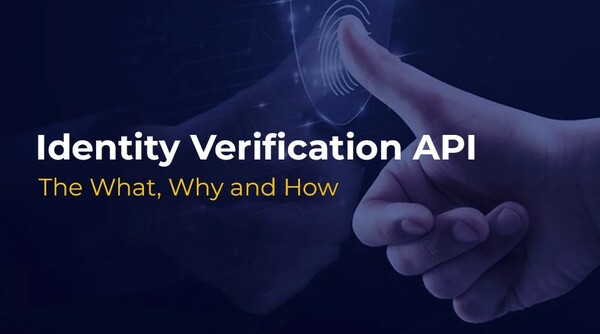In today's digital landscape, where online transactions and interactions have become the norm, ensuring the security and authenticity of user identities is of utmost importance. One technology that has emerged to address this concern is the Identity Verification API. This powerful tool offers a wide array of benefits that not only enhance security but also streamline user experiences. In this article, we will delve into the various advantages of integrating an Identity Verification API into your digital platforms.
1. Introduction
In an era where digital interactions are an integral part of everyday life, ensuring the legitimacy of user identities is paramount. This is where Identity Verification APIs come into play. These APIs provide a seamless and efficient way to verify the identity of users during various interactions, offering a range of benefits that positively impact security, compliance, and user experience.
2. Enhanced User Security
Identity theft and fraudulent activities are ever-present threats in the digital realm. By integrating an Identity Verification API, businesses can add an extra layer of security to their platforms. The API leverages advanced identity verification techniques, such as biometric recognition and document authentication, to ensure that users are who they claim to be.
3. Frictionless User Onboarding
Traditional user onboarding processes often involve lengthy and cumbersome identity verification procedures. This can lead to user drop-offs and frustration. With an Identity Verification API, the onboarding process becomes swift and user-friendly. Users can verify their identities in real-time, eliminating the need for them to visit physical locations or submit multiple documents.
4. Compliance with Regulations
Many industries are subject to stringent regulations regarding user identity verification. Identity Verification APIs are designed to assist businesses in complying with these regulations, such as KYC (Know Your Customer) and AML (Anti-Money Laundering) requirements. This ensures that businesses not only provide secure platforms but also adhere to legal obligations.
5. Real-time Verification
Waiting for manual identity verification can be time-consuming and frustrating for users. Identity Verification APIs offer real-time verification, allowing users to access services and platforms immediately. This real-time aspect significantly enhances user experience and satisfaction.
6. Minimized Fraud
Fraudulent activities can lead to financial losses and reputational damage for businesses. The advanced algorithms and technologies integrated into Identity Verification APIs can accurately detect fraudulent documents and activities, minimizing the risk of fraud.
7. Scalability and Flexibility
Whether a business is a startup or an established enterprise, scalability is crucial. Identity Verification APIs are designed to accommodate businesses of all sizes. They can seamlessly handle a high volume of identity verification requests, making them suitable for businesses experiencing growth.
8. Customizable Workflows
Different businesses have different identity verification requirements. Identity Verification APIs offer customizable workflows that can be tailored to match specific business needs. This flexibility ensures that businesses can verify identities in a manner that aligns with their unique processes.
9. Cost Efficiency
Manual identity verification processes can be labor-intensive and expensive. By automating the verification process through an API, businesses can significantly reduce operational costs while maintaining high levels of accuracy and security.
10. Global Accessibility
In today's interconnected world, businesses often interact with users from various countries. Identity Verification APIs can verify identities from around the globe, supporting businesses in expanding their user base beyond borders.
11. Improved User Trust
When users know that a platform employs robust identity verification measures, they are more likely to trust the platform with their sensitive information. This trust can lead to increased user engagement and loyalty.
12. Use Cases
E-commerce
Online retailers can use Identity Verification APIs to prevent fraudulent purchases and ensure that delivery addresses match the user's identity.
Financial Institutions
Banks and financial institutions can streamline customer onboarding processes while adhering to regulatory requirements.
Healthcare Services
Healthcare providers can verify patient identities securely, ensuring that sensitive medical information remains confidential.
Travel and Hospitality
Hotels and travel agencies can verify the identities of guests, enhancing security and providing personalized services.
13. Implementation Considerations
Integration Ease
Businesses should choose an Identity Verification API that offers seamless integration with their existing systems and applications.
Data Privacy
It's crucial to select an API provider that prioritizes data privacy and follows industry best practices to protect user information.
User Experience
The user experience should remain smooth and straightforward, even during the identity verification process.
14. How to Choose the Right Identity Verification API
Accuracy and Reliability
Look for an API that has a proven track record of accurate and reliable identity verification.
Documentation and Support
Comprehensive documentation and responsive support are essential for a smooth integration process.
Customization Options
Choose an API that allows customization to match your business's specific needs.
15. Conclusion
In an increasingly digital world, where security and trust are paramount, integrating an Identity Verification API can provide a multitude of benefits. From enhancing user security and trust to complying with regulations and minimizing fraud, the advantages are substantial. By choosing the right Identity Verification API and implementing it thoughtfully, businesses can elevate their digital platforms to new heights of security and efficiency.


